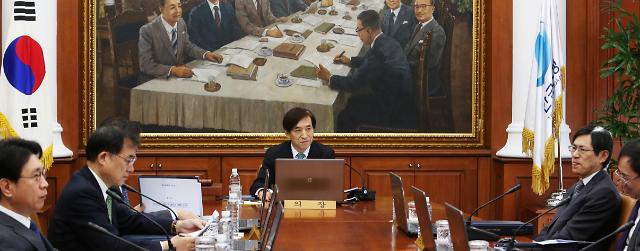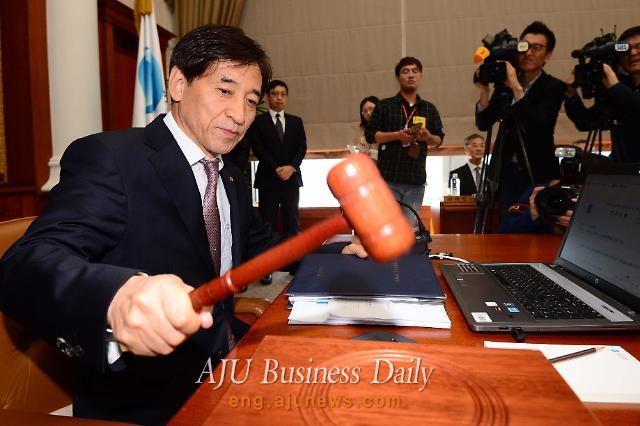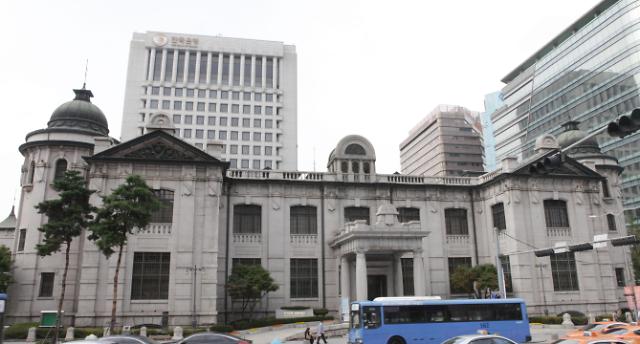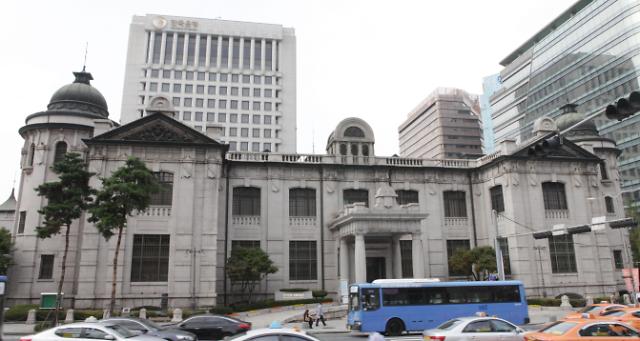
The rate freeze came after the Bank of Korea (BOK) slashed the base rate by 0.25 percentage point on March 12 in an effort to bolster growth momentum.
Following is the full text of a statement the central bank issued after a meeting of its Monetary Policy Committee earlier in the day.
"Based on currently available information, the committee considers that, although the trend of economic recovery in the United States has been sustained and improvements have also continued in the euro area, economic growth in emerging market countries, including China, has slowed. The committee forecasts that the global economy will sustain its modest recovery going forward, centering around advanced economies such as the United States, but judges that the possibility exists of its being affected by changes in the monetary policies of major countries, by the weakening of economic growth in emerging market countries, and by geopolitical risks.
"Looking at the Korean economy, the committee judges that domestic demand activities such as consumption and investment appear to have improved, although exports have continued their trend of decline due mostly to decreases in the unit prices, for example, of petroleum products, while the sentiments of economic agents have not clearly recovered. On the employment front, the unemployment rate has risen somewhat, due mainly to an expansion in job search activities, but the employment-to-population ratio has also increased as the number of persons employed has steadily grown. The committee expects that the domestic economy will show a modest trend of recovery going forward, although the negative output gap will persist for a considerable time.
"Despite a narrowing of the extent of decline in petroleum product prices, consumer price inflation fell from 0.5 percent the month before to 0.4 percent in March, due mainly to decreases in prices of agricultural, livestock and fisheries products. Core inflation excluding agricultural and petroleum product prices fell to 2.1 percent, from 2.3 percent in February, owing to a slowdown in the rate of industrial product price increase. Looking ahead, the committee forecasts that inflation will continue at a low level, due mainly to the effects of the low oil prices. In the housing market, the upward trends of sales and leasehold deposit prices have accelerated in both Seoul and its surrounding areas and the rest of the country.
"In the domestic financial markets, long-term market interest rates have fallen while stock prices have risen, due largely to the base rate cut, to the easing of concerns about an early policy rate hike by the U.S. Federal Reserve, and to inflows of foreigners’ securities investment funds. The Korean won had depreciated against the U.S. dollar but has since appreciated, affected by changes in expectations related to the monetary policy of the Federal Reserve. After depreciating, the won has also appreciated against the Japanese yen. Bank household lending has sustained its trend of increase at a level greatly exceeding that of recent years, led by mortgage loans.
"While supporting the recovery of economic growth, the committee will conduct monetary policy so as to maintain price stability over a medium-term horizon and pay attention to financial stability."




